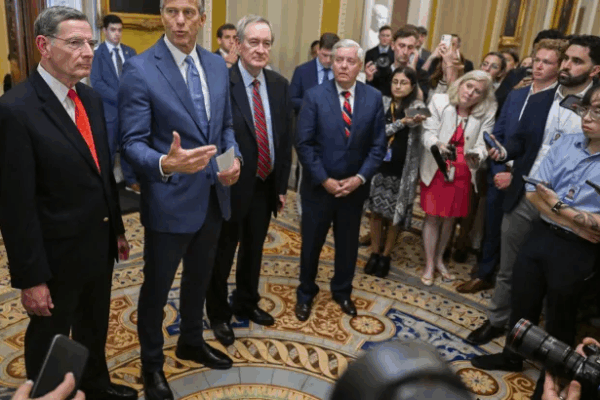
Trump’s Big, Beautiful Bill Passes Senate by Razor-Thin Margin, Heads to House Amid Healthcare and Debt Concerns
In a dramatic late-night session, the U.S. Senate has narrowly passed what President Donald Trump has dubbed the “Big, Beautiful Bill” — a sweeping tax and spending reform package that has stirred intense political debate. The legislation now moves to the House of Representatives, where a heated showdown is expected. The bill scraped through the Senate in a 50-50 tie, broken by Vice President JD Vance’s deciding vote after more than 27 hours of intense floor debate and behind-the-scenes negotiations. At least three Republican senators — Rand Paul, Susan Collins, and Tom Tillis — initially voiced opposition, citing concerns ranging from ballooning national debt to drastic cuts in healthcare coverage. In the end, only Collins held her ground, while Murkowski and others yielded under growing pressure from party leadership. Paolo von Schirach, president of the Global Policy Institute, told Al Jazeera that Trump’s firm grip on the Republican Party played a major role in securing the bill’s passage. “He essentially threatens anybody who votes against anything he wants with a primary challenge,” von Schirach said. “That’s how he keeps people in line.” The bill’s passage has drawn fierce criticism from progressive Democrats. Representative Pramila Jayapal, chair of the House Progressive Caucus, condemned the legislation in a post on social media: “A victory lap for ripping health care away from 17 million poor Americans. There are no words.” Senator Rand Paul, a vocal critic, warned that the bill could add up to \$3 trillion to the national debt over the next decade. Meanwhile, Senator Tillis raised concerns about millions of Americans potentially losing access to various forms of health coverage. Despite the opposition, Republican leaders celebrated the bill as a legislative win for the Trump administration and a key piece of the president’s economic agenda. With the House vote expected soon, the political stakes remain high as both parties prepare for what could be one of the most consequential legislative battles ahead of the 2026 midterms.

